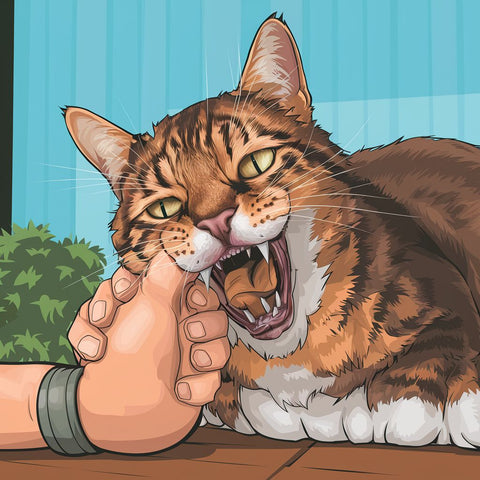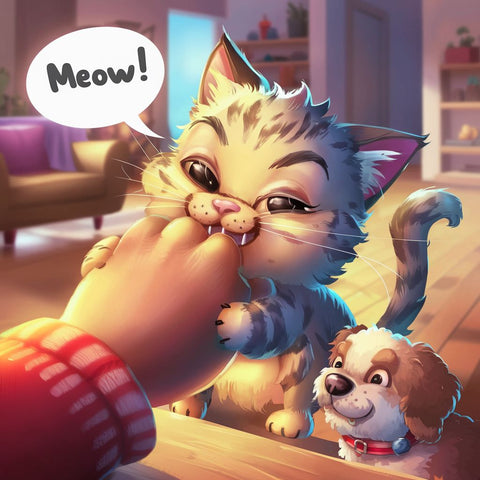Improve cats’ habit of biting lightly

Cats' light biting behavior is a behavior that needs to be stopped early to avoid it becoming a problem behavior when they grow up. As a cat grows older, its teeth and oral muscles become stronger, and its bite may become stronger.
Here are some ways to help stop your cat from biting:
1. Don’t play with cats. Once a cat bites, the best way is to stop playing with them immediately. This teaches them that biting is not rewarded with attention and continued play. Scolding a cat usually gives them more attention, which can have the opposite effect.
2. Provide appropriate chew toys Cats may sometimes bite because they need to chew and chew. Providing chew-friendly toys, such as rubber or yarn balls, can distract them and provide an appropriate outlet.
3. Pay Attention to Body Language When cats display aggressive gestures, such as tail twitching, ears flat against their head, back hair standing on end, etc., this may be a sign that they do not wish to be touched or continue to interact with humans. Respect their boundaries and avoid triggering aggressive behavior.
4. Proper socialization and training. Start proper socialization and training from an early age to allow cats to get used to contact with people and other animals. This helps them develop correct behavioral patterns and social skills.

The most important thing to note is that when your cat bites lightly, don't suddenly withdraw your hand. This may stimulate their hunting instincts, making them more excited and thinking it's a game. Instead, remove your hand from their mouth slowly and smoothly and avoid arousing more excitement.
In summary, stopping a cat from lightly biting requires early intervention and the development of correct behavior patterns. Stopping play with them, providing appropriate chew toys, paying attention to your cat's body language, and engaging in proper socialization and training are all effective methods. Also, avoid withdrawing your hand suddenly to avoid stimulating their hunting instincts. If the problem persists, it is best to consult a veterinarian or professional pet behaviorist for further advice and assistance.
